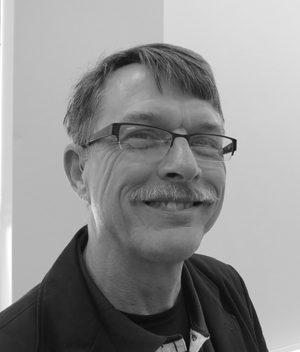Religion and the Good of the City: Report 3
Stanley Carlson-Thies is founder and President of the Institutional Religious Freedom Alliance, a Washington, DC-area nonpartisan think tank that focuses on safeguarding the religious identity and faith-shaped standards and sevices of faith-based service organizations. Until the end of 2008 he was Director of Faith-Based Policy Studies at the Center for Public Justice, where he remains a Senior Fellow. He is the convener of the Coalition to Preserve Religious Freedom, a multi-faith alliance of social-service, education, and religious freedom organizations that advocates for the religious freedom of faith-based organizations to Congress and the federal administration. He is a consultant to the Department of Labor’s Beneficiary-Choice Contracting project and has consulted on the removal of barriers with the Department of Health and Human Services Center for Faith-Based and Community Initiatives, the Corporation for National and Community Service, and several states, including Ohio, Texas, and Virginia.
Carlson-Thies served with the White House Office of Faith-Based & Community Initiatives from its inception in February, 2001, until mid-May, 2002. He assisted with writing “Unlevel Playing Field: Barriers to Participation by Faith-Based and Community Organizations in Federal Social Service Programs,” a report released by the White House in August, 2001, and “Rallying the Armies of Compassion,” the initial blueprint for President George W. Bush’s faith and community agenda. Carlson-Thies was Director of Social Policy Studies for the Center for Public Justice before joining the White House, and directed the Center’s project to track the implementation and impact of the Charitable Choice provision of the 1996 federal welfare reform law.
Carlson-Thies’s publications include “Faith-Based Initiative 2.0: The Bush Faith-Based and Community Initiative,” Harvard Journal of Law & Public Policy (Summer 2009); “The Faith-Based Initiative: Both Cause of Contention and the Solution to an Impasse?” Journal of Ecumenical Studies (Winter 2009); “Why Should Washington, DC, Listen to Rome and Geneva About Public Policy for Civil Society?” in Jeanne Heffernan Schindler, ed., Christianity and Civil Society (Lexington Books, 2008); The Freedom of Faith-Based Organizations to Staff on a Religious Basis, with Carl Esbeck and Ron Sider (Center for Public Justice, 2004); “Implementing the Faith-Based Initiative,” in The Public Interest (Spring 2004); Revolution of Compassion: Faith-Based Groups as Full Partners in Fighting America’s Social Problems, with Dave Donaldson (Baker Books, 2003); “Charitable Choice: Bringing Religion Back into American Welfare,” in H. Heclo and W. McClay, eds., Religion Returns to the Public Square: Faith and Policy in America (2003); “Transforming American Welfare: An Evangelical Perspective on Welfare Reform,” in D. Gushee, ed., Toward a Just and Caring Society (1999), and “Faith-Based Institutions Cooperating with Public Welfare,” in D. Davis and B. Hankins, eds., Welfare Reform and Faith-based Organizations (1999). He also wrote Charitable Choice for Welfare & Community Services: An Implementation Guide for State, Local, and Federal Officials (Center for Public Justice, 2000), compiled A Guide to Charitable Choice: The Rules of Section 104 of the 1996 Federal Welfare Law Governing State Cooperation with Faith-based Social-Service Providers (a co-publication of the Center for Public Justice and the Center for Law and Religious Freedom of the Christian Legal Society, 1997), and co-edited Welfare in America: Christian Perspectives on a Policy in Crisis (1996).
Carlson-Thies received the William Bentley Ball Life and Religious Liberty Defense Award from the Center for Law and Religious Freedom and the Christian Legal Society in October, 2004. He was named as one of twelve advocates who are “reinterpreting God and country” by the National Journal in May, 2004. He holds a doctorate in political science from the University of Toronto. His dissertation is on the role of Protestants and Catholics in the development of Dutch politics in the 19th and 20th centuries. Besides the United States, he has lived in Canada, the Netherlands, and Japan, where he was born of missionary parents.

